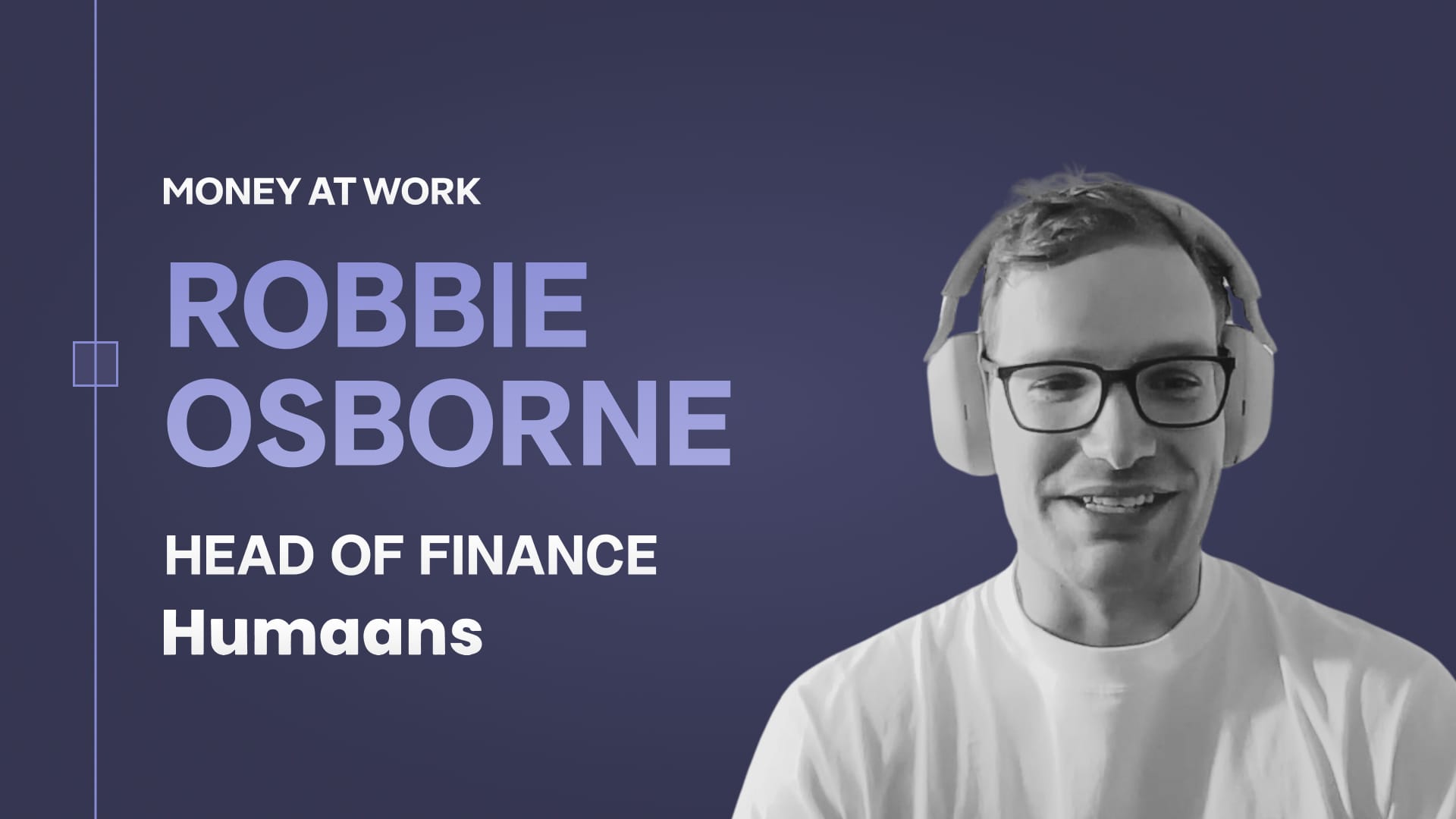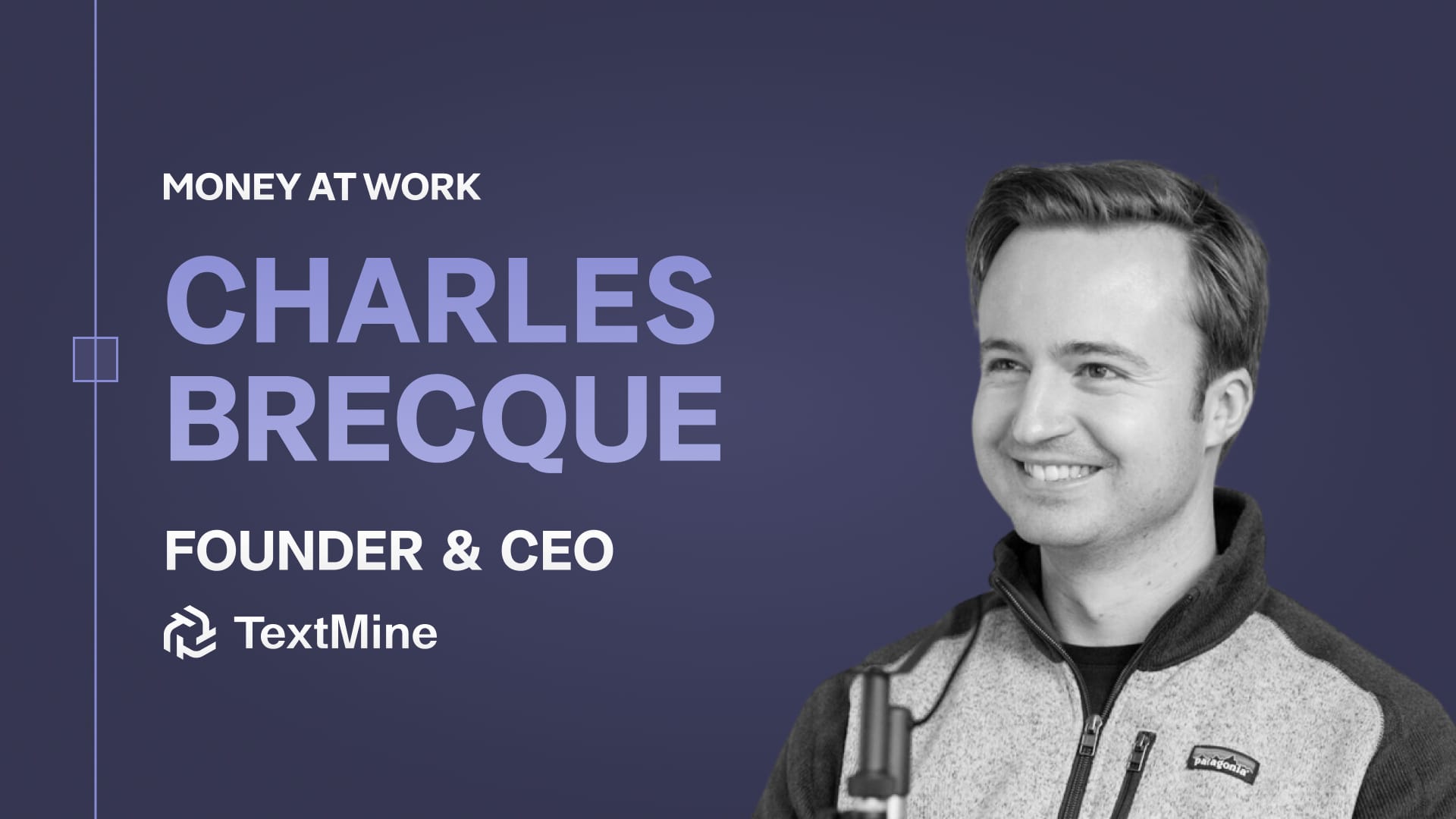We often hear an IPO announcement when the company enters the public market, but not often do we hear about the journey and strain on the finance team when preparing for one.
In this episode, Dhruv Chadha, the CFO of Nansen, shares his journey from being a finance analyst to an accidental CFO and the challenges of scaling a finance team. He discusses his experience at Wise, where he witnessed the company's growth from 300 to over 3,000 employees and what they did when preparing for Wise IPO in 2021.
What is your advice when setting up the finance team?
Deliberate structure is key for scaling a finance team. By setting a structure in place, it becomes easier to hire the right people and assign them specific responsibilities. That in turn allows the finance lead to focus on strategic thinking and planning, rather than being the sole person responsible for all decision-making.
Secondly, consider the context of your business. Different industries and sectors have varying requirements when it comes to finance. For example, regulated industries like financial services and fintechs have regulatory obligations and need to communicate with regulators which in turn will impact how you might structure your finance team.
What was your career path to becoming a CFO?
Traditionally, CFOs would have an accounting background, but nowadays, there are multiple paths one can take. I come from an economics background, that helps me get a macro view of the economy, while also allowing me to be in the details. There are individuals who come from consulting or investment banking backgrounds and still excel in finance leadership roles. In my case, I don’t even have an accounting degree. That just shows that there is no one-size-fits-all approach to becoming a CFO.
What is your role as a CFO?
I am responsible for various aspects of finance, including accounting, strategy, and commercial operations. I am strong on analytical skills, ability to structure problems, and the strategic and commercial side of finance, such as forecasting, pricing, and working with sales and marketing teams.
Whether it is through accounting, consulting, investment banking, or other finance-related backgrounds, all paths can be valid. It is important to understand and reflect on your strengths and weaknesses, and focus on what you are good at and enjoy, and be intentional about stepping back and looking at the bigger picture.
When working in finance, it is difficult to check your own homework when you are immersed in the details. Stepping back and looking at things from a higher level requires practice and experience. It is important to understand the ultimate goal of a task and be able to communicate it effectively. For example, when creating a forecast model for fundraising purposes, I need to step back and think about how to present the information in a way that tells a compelling story to investors.
You have to be intentional about stepping back and looking at the bigger picture. You almost need to force yourself to practise this skill early on or lean on others for help. I am fortunate that I have a team of accountants who handle the detailed work, allowing me to focus on higher-level responsibilities.
How CFOs use numbers to tell a story?
The founder and CEO may set the vision and direction for the company, but it is the CFO who tells the story through numbers and financial models. The CFO's role is to provide substance and weight to the founder's story, so it’s an art and a science. It involves understanding how the company operates, its products, and its overall strategy. The CFO must go deep and have a very good and detailed knowledge of the company to effectively explain its financial story to others.
It’s important to note that the CFO's role goes beyond just storytelling. We also provide an independent assessment of whether a company's plan, vision or a forecast makes sense. A good forecast is an accurate one, and by presenting a realistic and achievable plan, the CFO can demonstrate their ability to think critically and provide a grounded perspective. They act as the voice of reason, ensuring that the company's goals and projections are attainable.
How Wise approached profitability?
To ensure profitability, Wise wanted every single transaction to be profitable. We did that by breaking down our profit and loss statement (P&L) into the millions of transactions that happen each month. We then analysed the cost base of each transaction, including factors like verification, fraud, and payment methods and attributed these costs to every line in the P&L, creating a data model that underpinned our pricing strategy.
One example of a non-obvious but easy cost allocation was the allocation of employee salaries. We decided to spread the allocation equally, simplifying the process. However, the real fun and challenge is when we need to dive into the product. By understanding our cost drivers, such as verification and payment methods, our product managers could find alternative providers or improve onboarding processes to reduce costs and pass on the savings to customers. This alignment between the finance and product teams allowed Wise to really work towards its mission of dropping prices while maintaining profitability.
What have been your key learnings from your career?
Working in a fast-growing company like Wise really challenged me to let go, learn to adapt and evolve with the organisation. I had to continuously reinvent myself. In my time at Google that was not as prevalent, however, at Wise where everything becomes bigger, faster, and more complex on a day-to-day basis you need to evolve and adapt fast.
Eventually I learned the importance of horizon scanning and not getting stuck in the present. You need to think about where the company is heading and what you need to do to prepare for that future. Another significant challenge I had was the difficulty of letting go and delegating tasks to others. As the company grew we needed to hire more people and build a team. Letting go of control and trusting others to take over certain tasks can be challenging.
How do you prioritise and set focus as a CFO?
In order to achieve something significant, you must set transformational goals for yourself. Simply putting in more effort or incrementally improving will only lead to a 2x outcome, not the 10x outcome.
To reach a 10x outcome, you must first conceptualise what it is you want to achieve and then simplify and focus on the tasks that will get you there. This requires prioritisation and the ability to identify what is truly impactful and what will move the needle. The idea of focusing on impactful goals and prioritising tasks is a matter of good time management. It is easy to get distracted and overwhelmed with small tasks.

Under the hood: How to build your finance data strategy | Robbie Osborne, Head of Finance at Humaans
27 Mar 2024
In this episode of the Money at Work podcast, we are joined by Robbie Osborne who is the Head of Finance at Humaans. Coming from a consulting background Robbie joined Humaans to build the function from scratch and develop reporting and data infrastructure that runs the organisation.

How bad financial and legal hygiene can make or break your startup | Charles Brecque, TextMine
14 Feb 2024
In this episode, we had the pleasure of speaking with Charles, the founder, and CEO of TextMine (formerly known as Legislate), about the journey of his company and the critical aspects of legal and financial management in startups.